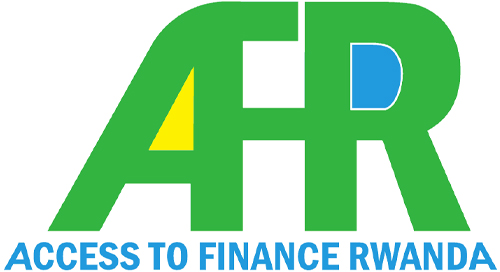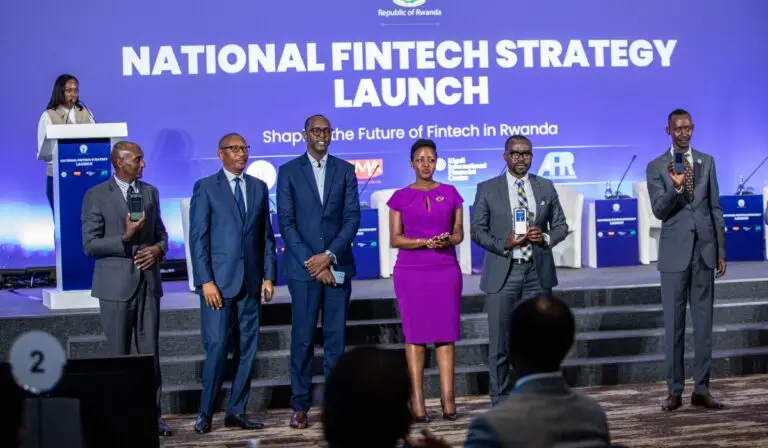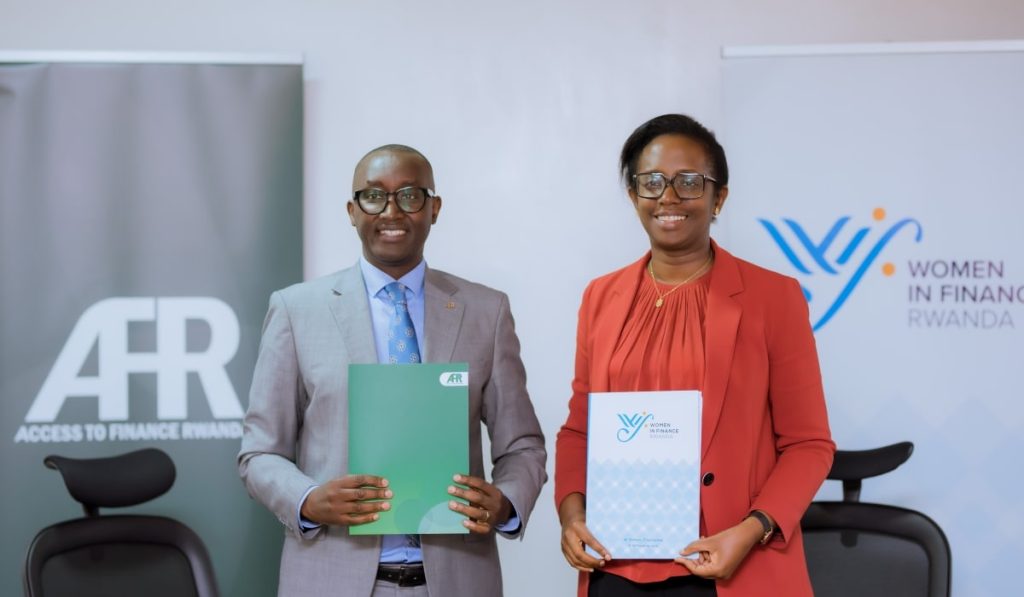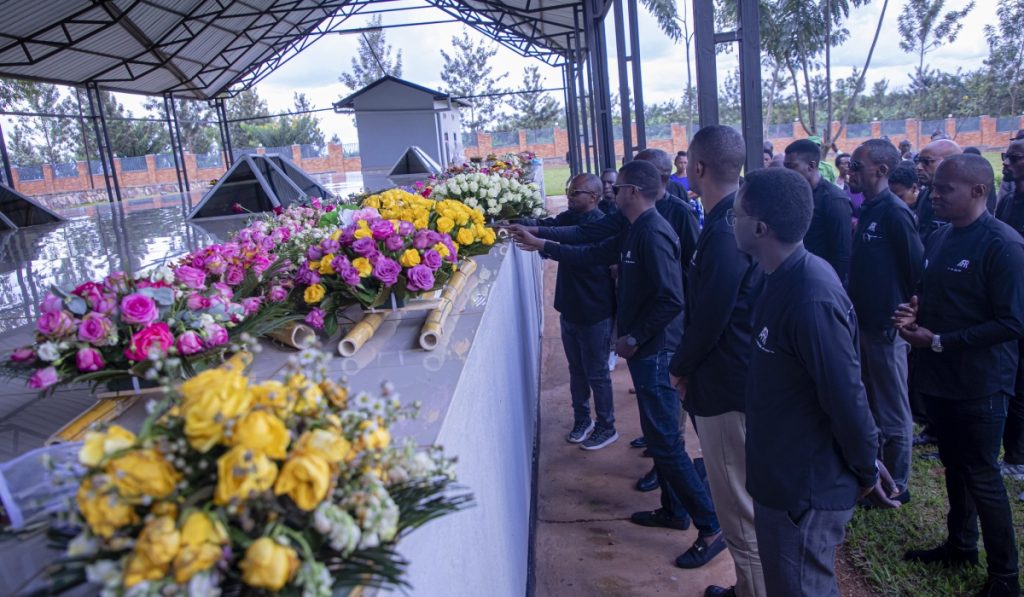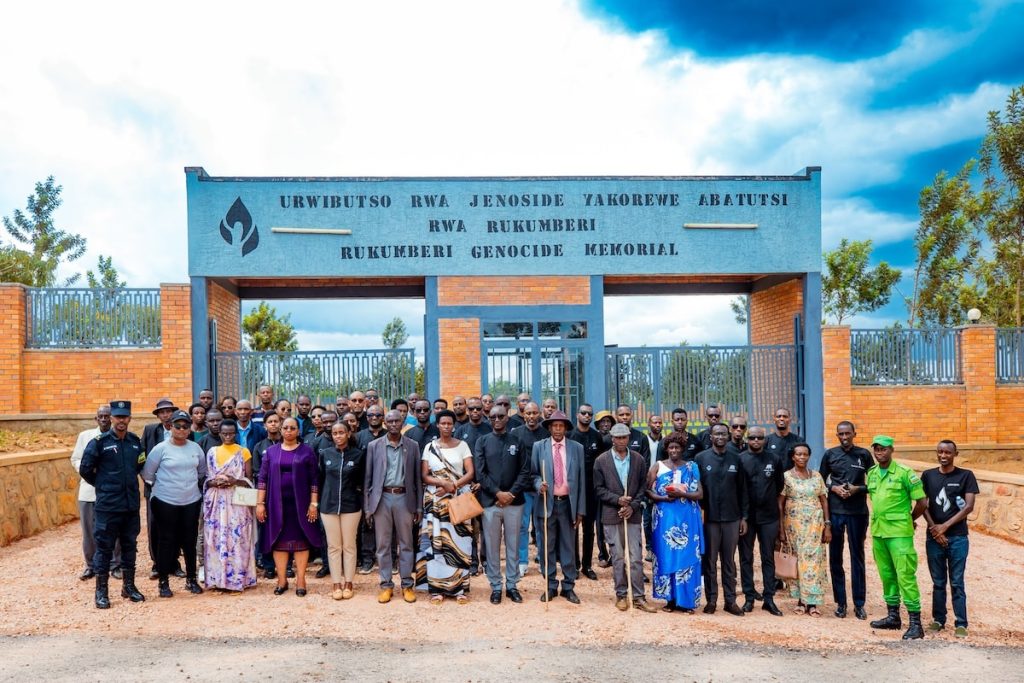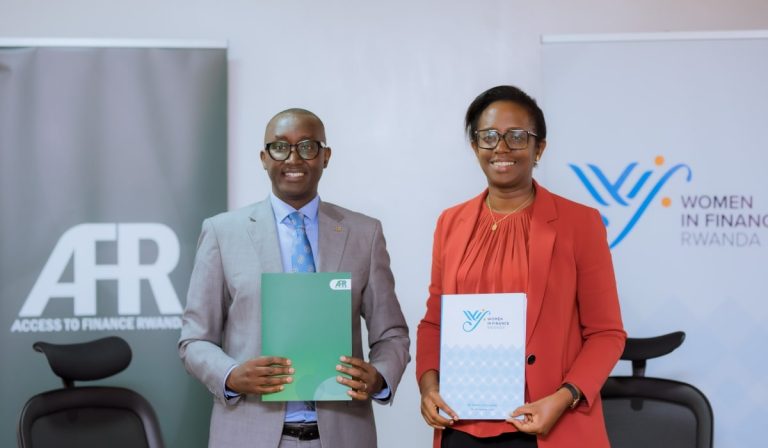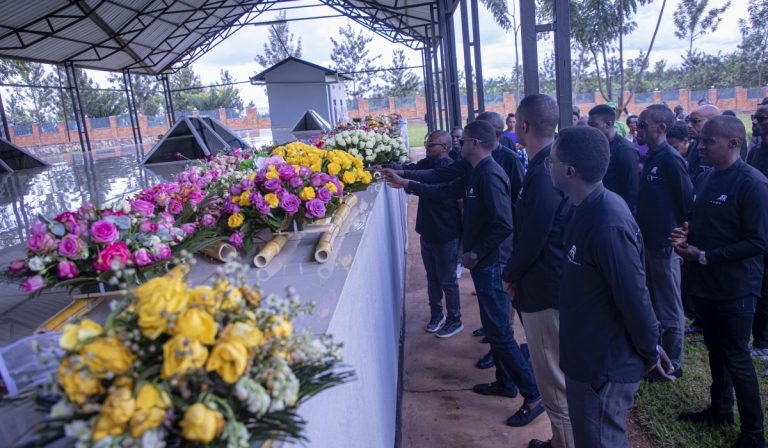The COVID-19 pandemic, and resulting restrictions, revealed the value proposition of digital adoption and digital commerce in Rwanda by providing continuity of business through contactless, cashless transactions. As part of the COVID-19 response, Access to Finance Rwanda (AFR) in collaboration with Mastercard Foundation launched the iHuzo Project, implemented in partnership with ICT Chamber and BFA global with the aim of promoting an enabling market system for digital commerce and spurring the growth of livelihood opportunities it generates. At the core of the project is the onboarding of Micro and Small Enterprises (MSEs) and iWorkers (people whose livelihoods are enabled by digital commerce platforms where they sell goods and services, in a broad variety of forms). Many, including gig workers, e-lancers, and e-commerce merchants are self-employed and connected via a smartphone) to digital platforms.
To bridge the gap between key stakeholders in the digital ecosystem, the iHuzo digital platform was developed as a linkage platform that will bring together key stakeholders in one place. MSEs and iWorkers can sign up, get matched to relevant digital platforms of their choice, and be seamlessly onboarded to begin selling online. They can also engage with other players such as digital financial services providers while at the same time receiving the information and training, they need to succeed online.
As of December 2021, the iHuzo project has onboarded 1,935 MSEs on digital platforms and 1,207 iWorkers onto different labor platforms operating in diverse sectors of the economy. Moreover, to address the challenge of a lack of digital skills, the project has trained over 1,274 MSEs equipping them with the understanding of digital commerce benefits to their businesses and skills such as marketing and sales. The project also aims to train 2,000 iWorkers with digital marketing and sales skills that will help them find jobs online and succeed as digital workers. A small survey conducted to assess the impact of the project indicates that onboarded MSEs and iWorkers have shown improvements in how they manage online presence, awareness, and digital skills.
The success of the digital platforms requires partnership and collaborations across different players in the Rwandan digital ecosystem.
“The iHuzo project was born from the need to boost the number of businesses selling their products and services online. The project will highly benefit Micro and Small Enterprises, and iWorkers (digitally connected workers with smartphones: gig workers, e-lancers, e-commerce merchants or sellers.)”
Jean Bosco Iyacu, CEO of Access to Finance Rwanda (AFR)
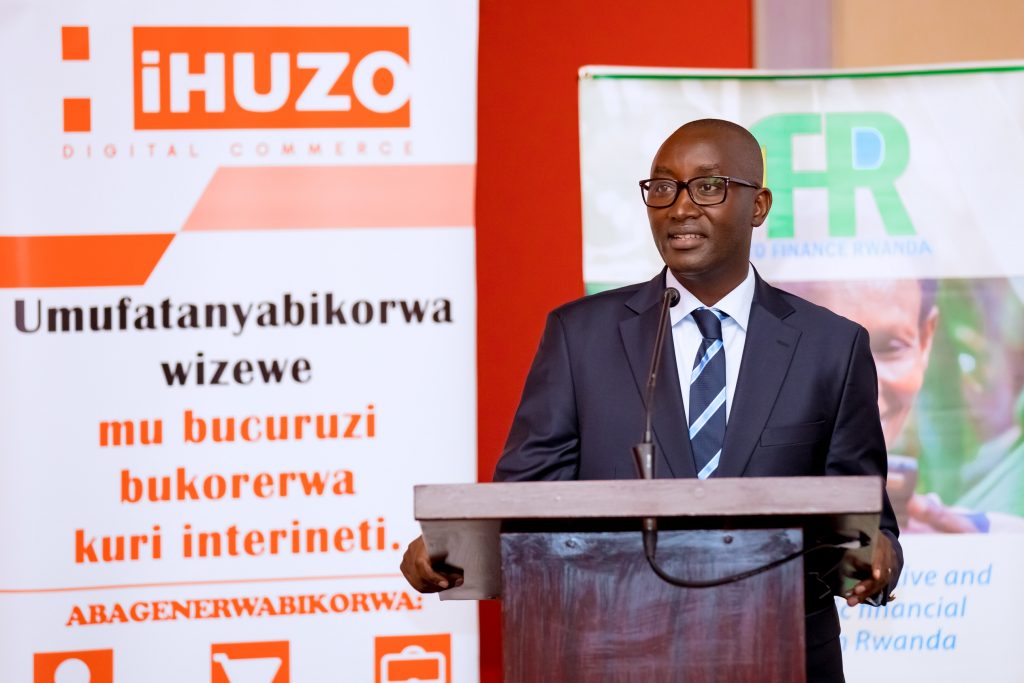
What are the Existing Initiatives to Promote Digital Commerce?
In October 2021, iHuzo project brought together key stakeholders, both public and private, in the digital commerce ecosystem in Rwanda to discuss the challenges MSEs and iWorkers face, and the role that digital platforms/E-commerce can play in enhancing service delivery, innovation, and financial growth of MSEs and iWorker in the country. Over 120 participants from various Government Institutions; Ministry of Trade and Industry (MINICOM), Ministry of ICT and Innovation (MINICT), Rwanda Development Board (RDB), the National Bank of Rwanda (BNR), Rwanda Internet Community and Technology Alliance (RICTA), Rwanda Information Society Authority (RISA,), etc.) and financial service providers (MTN Rwanda, Equity Bank, Bank of Kigali, etc.), as well as development partners (GIZ, UNCDF, etc.) who actively engaged with panelists.
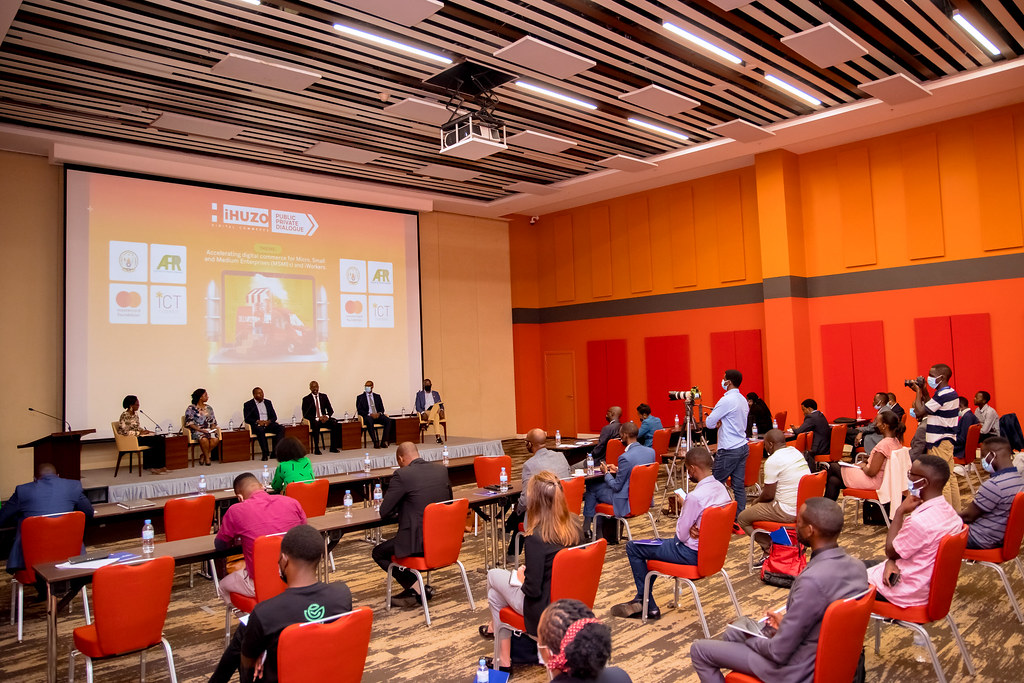
The convening came at an opportune time, amid tremendous growth of digital commerce in Rwanda, particularly accelerated by the COVID-19 pandemic. In her remarks, Paula Ingabire, Minister of ICT and Innovation (MINICT) noted that there has been unprecedented growth in e-commerce due to the COVID-19 pandemic.
“Since the COVID-19 outbreak, we’ve all seen how selling and buying using online means helped us navigate amid the pandemic. However, the industry is facing a number of challenges that need to be addressed for better service to be delivered.”
Paula Ingabire, Minister of ICT, and Innovation
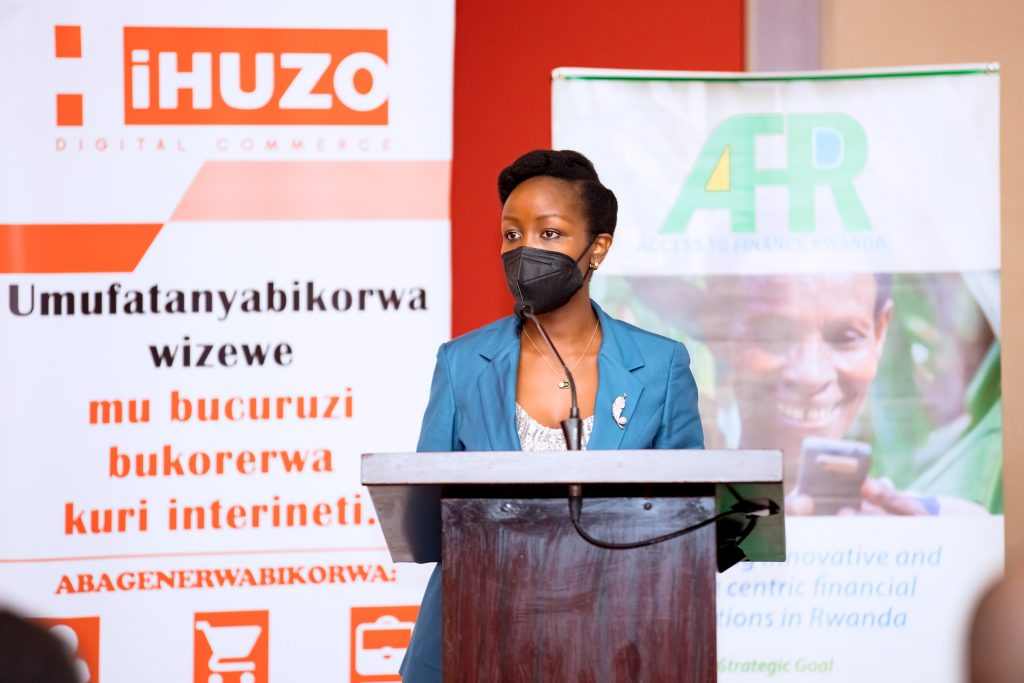
During the pandemic, consumers also embraced digital commerce, allowing businesses to continue operations remotely. A research conducted by AFR with support from BFA Global in early 2020 on the perception of e-commerce by Rwandan MSEs and consumers, indicated that consumers’ engagement with e-commerce platforms significantly increased in Rwanda during the COVID-19 pandemic. 53% of the survey respondents expressed willingness to keep using e-commerce platforms due to the time savings and access to a wider range of goods and services.
It was promising to learn through discussions at the convening that key stakeholders are working to expand digital commerce in the country and address existing challenges.
Alex Ntare, the ICT Chamber CEO, shared with participants the progress of iHuzo platform, highlighting key features and functionalities of the platform that come to address challenges such as trust in the quality of iWorkers, matching platforms with qualified resources, and more.
The Government of Rwanda through the Ministry of Trade and Industry is putting together an e-commerce policy and strategy to regulate the industry and encourage entrepreneurship. RDB has focused on digital skills for iWorkers through partnerships with numerous international players such as GIZ, Alibaba, and FAO. Other positively impactful initiatives undertaken by the government include incentivizing Mobile Network Operators (MNOs) to make internet infrastructure accessible and affordable through zero-rating and offering free smartphones and creating tech challenges and hackathons for innovators to build expertise and provide mentorship.
Digital financial services (DFS) players such as banks and fintech companies are developing products and services for MSEs and iWorkers while changing their once rigid policies to consider the needs and challenges MSEs and iWorkers face.
For example, Mobile Network Operators (MNOs) have improved access to payments and other financial services and products, especially at the last mile, lowered mobile money commission charges for merchant payments, scrapped transaction charges of small amounts below 2,000 RWF up to 4 times in a day, and is planning to diversify offerings to microinsurance and loans for both merchants and agents.
To serve the MSEs segment, Equity Bank has created a department dedicated to MSEs, simplified account opening and done away with associated costs, expanded agent network, intentionally focused on women and youth, diversified loan portfolio, and come up with creative ways of determining the creditworthiness of MSEs
Despite the benefits of digital commerce discussed, there is still a long way to go to expand digital commerce and the livelihoods it generates. This is due to some challenges that are still slowing down the use of digital commerce platforms like:
- Access to capital for both iWorker and MSEs (considering the iHuzo project was a pilot to test if both MSEs and iWorkers can get loans using Data: Cash Flow lending)
- Education for the demand side of the e-commerce ecosystem (iHuzo project is only supporting on the supply side)
- Banks still charge a lot of money for digital payments (Visa, Mastercard). For instance, whenever a transaction is made, the bank takes around 4% of the fee considering e-commerce marketplaces are paid between 8% and 10% on commission. So, if the bank takes 4 %, the platform remains with only 6% which is likely to make the business unprofitable.
Going Forward
The ongoing initiatives are necessary and important for the advancement of digital commerce in Rwanda. Still, we identify three possible ways to further catalyze the development of the sector.
- Building the capacity of e-commerce platforms. The growth of digital commerce is inevitable; it is disruptive and has the potential to generate positive outcomes. However, it will take time to see the impact. E-commerce readiness in Rwanda is still low. There is a limited number of platforms to absorb iWorkers and MSEs of different skills and educational backgrounds. Capacity building of digital platforms is needed to promote the onboarding and success of MSEs and iWorkers. This means capital investments in digital platforms require building capacity around skills processes (i.e., Onboarding) and technology.
- Policies around e-commerce need to be more enabling. When asked about challenges they face, MSEs and iWorkers mentioned high commissions, unclear tax policies, consumer protection issues, etc. These challenges require policy interventions to be addressed. Hence, policymakers need to continue working together with industry players to find effective ways of addressing these challenges.
- Engage in more collaborations to leverage existing efforts and create synergies. As discussed above, different stakeholders are engaging in initiatives to address challenges in the ecosystem. While the initiatives are much needed, some of the efforts can result in duplication of efforts. There is a need for stakeholders to have a continuous dialogue to share insights and learnings.
